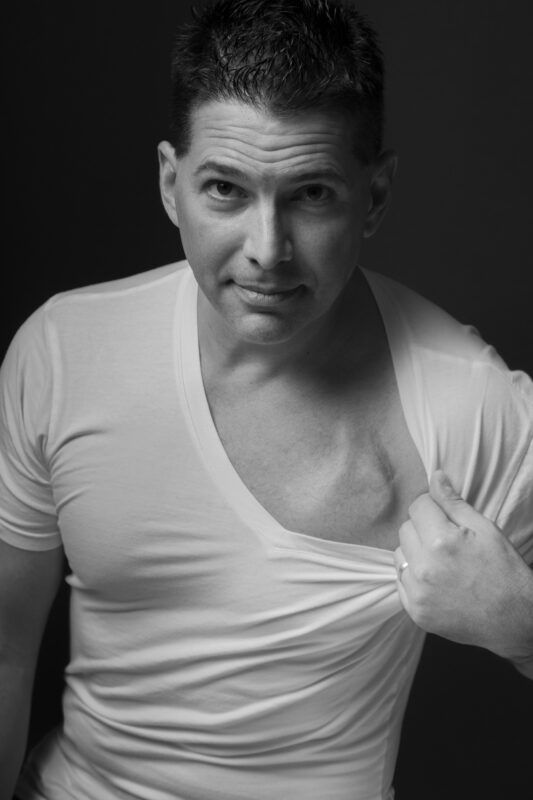I used to think I was making the most of life.
I was an athlete and a bodybuilder. Outside of the gym, I was on the up-and-up in my career. I was, by all accounts, successful.
I was content.
Then my heart failed me…literally.
Not many people know this, but I have a degenerative heart condition called hypertrophic obstructive cardiomyopathy. If it sounds scary, that’s because it is. It is a genetic condition in which the heart muscle becomes abnormally thick and happens to approximately one in 500 people. It’s a rare disease, to be sure, but it’s the second most common heart disease out there.
One day in my early thirties, I discovered I was winded after walking one block. This was weird, considering how active and in shape I was. I had never felt that way before, and I knew this was abnormal for me.
It continued to get worse, and so I finally decided to get it checked out. Spoiler alert: the results weren’t benign.
From that moment, my life changed seemingly overnight.
I was told I could never compete in sports again. Ever. In fact, with weightlifting, I was told I could no longer lift heavy weights. I used to run in plenty of 5 and 10k’s and I haven’t been able to “safely” run competitively again in the years since I was diagnosed.
Since the diagnosis, I have had to adjust my exercise regimen, but mostly because not enough is known about what is safe in hypertrophic cardiomyopathy.
As the disease has progressed, new problems have arisen from this condition, and I have developed paroxysmal atrial fibrillation (also known as A-fib, an irregular, rapid heart condition that causes poor blood flow). For me, it develops suddenly, and when my heart goes into A-fib, I know it right away because my heart doesn’t feel like it’s working right.
Now, I have to think about everything I do and put into my body for fear of going into A-fib. Caffeine is one of my triggers, so that means I can’t drink coffee anymore, or any other caffeinated drink for that matter. Sugar has been another trigger for me, so now I have to watch drinking or eating anything with a lot of sugar on an empty stomach because that simple thing can set me into A-fib. I won’t even mention how my love for wine has been altered since alcohol is another trigger that puts me into A-fib.
Every day has become a puzzle I have to solve, as I literally have to think about everything I put into my body and when and how to look not only at the little picture but the collective whole. Imagine having to change everything about your lifestyle in order to survive.

I love arming myself with facts about situations, so I immediately did as much research as I could about the disease. Here are the facts about my new reality:
-
There is no cure.
-
It tends to be progressive. (My symptoms have worsened.)
-
Many people who have HCM don’t even have symptoms. (This is why you sometimes hear about young athletes dropping dead of a heart attack during a sporting event.)
-
It’s genetic. (There’s a 50 percent risk to pass from parent to child.)
-
I am restricted in the type of exercise I can do, but exercise is still very important. (My doctors think it is possible that lifting all those heavy weights in my twenties brought my condition on earlier, so I have adjusted how I exercise.)
-
It can occur at any age from childhood to adulthood.
-
I choose how to live with this reality.
Though facts are facts, the way you think about health, life, and restrictions makes all the difference. I quickly realized that my condition didn’t mean I needed to stop living. It just meant I needed to start living differently. Because of that intentionality, I’ve learned to live life on my terms. I’ve learned to say yes to life instead of being a victim of my diagnosis. With that in mind, I took the seven points above and reframed them.
-
We are working on bringing more awareness to the condition and finding a cure.
-
I will get better at handling my disease.
-
I happen to have symptoms, which means I am able to attack it head on instead of ignoring it.
-
Knowing about my disease can help prepare my daughters in how they live.
-
I have some control in disease progressions by going to the gym and taking care of myself.
-
I’m glad to know about it earlier rather than later.
-
I choose how to see this reality.
While both “fact” lists express the same information, for me, the second set allows me to live my life in a more enjoyable way. My challenges are clear. (And we all have challenges.) But we can all live the life we want, at any time we want. Here’s what helps me on a daily basis:
-
Shift your purpose. When you face a challenge, focus on what’s important. Why do you get out of bed in the morning? My children are the most important things in the world to me. I work, I live, and I breathe for them. They’re my purpose. Everything I do comes back to them.
-
Don’t give yourself a choice. There are people with lung cancer who still smoke cigarettes. There are people with my disease who don’t work out because it’s difficult. Do you know how easy it would be for me to just not go to the gym? I don’t make decisions based on what I want to do in the moment. I’ve already made a decision on what kind of life I want to lead. Because I know that my heart is a muscle and must be trained, I go to the gym six or all seven days a week. I don’t give myself an option to do anything else. I may technically have a choice, but I don’t see it as one.
-
Stay positive. When I was first diagnosed, before I had fully processed my new reality, I came across an article by a 13-year-old girl about living with my disease and she had framed it with such a positive spin. She wrote that she used to run in the park, and because she was moving quickly, she never noticed all the details around her. After she was diagnosed, she was forced to walk through the park instead. That way, she could smell the flowers and see all the beautiful details in the landscape around her. Her story stuck with me. We all have the power to see our situations differently, if we want to.
-
Remain tunnel-visioned (sometimes). I’m a very positive person, but I have other emotions, just like anyone else. When I find myself in atrial fibrillation (again), I do feel disappointed and frustrated. But I know what I have to do. I contact my doctors right away, I find the solution, and I solve it. There’s no use dwelling on this small part of my life. In these moments, hyper-focusing on a solution helps me work through my negative emotions.
-
Educate yourself. Ignorance is only temporary bliss. Just as refusing to look at your bank statement doesn’t make you any richer, you won’t get any happier by refusing to face your unique reality. When you educate yourself about whatever challenge you’re facing, you can make excellent decisions within that new framework.
My condition isn’t going anywhere. I have no interest in dwelling on what my life could have been if I hadn’t been born with this condition. Receiving my diagnosis woke me up to how fragile life truly is. So now, I don’t let things bother me — especially the trivial things, because why would I let that energy manifest itself? It’s just not worth it.
When you decide what life you want to live, the rest of your decisions become easy because then you make them fit your reality — whatever that may be. Remember that whatever you are facing, life is always worth living.
While we all have our crosses to bear, mine are not going to hold me back.

